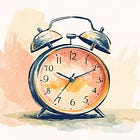The Underrated Killer: Obesity’s Hidden Link to Early Death—And How to Fight Back
Most People Overlook This Health Risk—Here’s How to Stay Safe
Lack of sleep can affect your mood and is linked to a higher risk of obesity and mortality from cardiovascular diseases.
Good sleep is essential for our health and emotional well-being. Both the quantity and quality of sleep are vital for healthy rest.
Recommended Hours of Sleep by Age
Getting enough sleep depends on your age. Here’s the daily recommended sleep for each group:
Newborn (0–3 months): 14–17 hours
Infant (4–12 months): 12–16 hours (including naps)
Toddler (1–2 years): 11–14 hours (including naps)
Preschooler (3–5 years): 10–13 hours (including naps)
School-age (6–12 years): 9–12 hours
Teen (13–17 years): 8–10 hours
Adult (18–60 years): 7 or more hours
Adult (61–64 years): 7–9 hours
Older adult (65+ years): 7–8 hours
Break free from misinformation with science-backed insights, practical health tips, the latest research, and expert myth-busting—all from a certified Medical Doctor. Join 3,000+ like-minded people now!
Health Benefits of Sleep
Getting enough sleep can help you:
Get sick less often.
Maintain a healthy weight.
Improve heart health and metabolism, reducing the risk of type 2 diabetes, high blood pressure, and stroke.
Enhance emotional well-being, lowering stress and improving mood.
Prevent accidents: Reduce the risk of motor vehicle crashes and injuries.
Boost productivity: Improve your attention, memory, and daily performance.
Understanding Sleep Quality
Quality sleep isn’t just about how many hours you get—it’s about how well you sleep. Signs of poor sleep quality include:
Difficulty falling asleep.
Frequently waking up during the night.
Feeling tired or sleepy even after enough sleep.
If you notice these signs, improving your habits or seeking help from your healthcare provider can make a big difference.
Sleep Disorders: What You Should Know
Sleep disorders are health conditions that prevent restful sleep, no matter how hard you try. Common sleep disorders include:
Insomnia: Trouble falling or staying asleep.
Restless legs syndrome: Uncomfortable sensations causing the urge to move your legs.
Narcolepsy: Sudden sleep attacks during the day.
Sleep apnea: Interrupted breathing during sleep.
If you suspect a sleep disorder, consult your healthcare provider. They may recommend:
Sleep studies to diagnose the issue.
Keeping a sleep diary to track patterns like bedtime, wake-ups, naps, and caffeine or alcohol intake.
Life-Changing Strategies for Restful Nights
Improving your habits can lead to quality, uninterrupted sleep. Try all these:
Go to Bed and Wake Up at the Same Time Every Day, Even on Weekends
According to a comprehensive review by the National Sleep Foundation, maintaining a consistent sleep schedule can transform your health and performance. Here’s what the research revealed about people with regular sleep patterns:
Better cardiovascular and metabolic health
Improved mental health
Enhanced academic and cognitive performance
Plus, sticking to consistent sleep times can lead to higher quality sleep and longer durations of rest. On the flip side, irregular sleep schedules have been linked to both health and performance problems.
Morning Strategies
Sunlight exposure: Natural light within the first hour of waking resets your circadian rhythm, improves melatonin production, and boosts alertness. Aim for 10–20 minutes outdoors or near a bright window.
This works incredibly well for me—on days when I can’t catch the morning sunlight, I notice I’m in a worse mood and my sleep quality suffers
Morning movement: Gentle exercise, like walking or yoga, helps wake your body and prepare for a productive day.
Hydration boost: Rehydrate first thing with a glass of water, adding lemon for antioxidants and a refreshing kick.
Morning journaling: Writing down goals or gratitude reduces stress and sets a positive tone, which ultimately benefits your sleep cycle.
Midday Adjustments
Mindful breaks: Incorporate short breathing exercises or stretches to reduce stress and prevent overstimulation.
Limit long naps: Keep naps under 30 minutes and avoid sleeping after 3 PM to maintain your nighttime rest.
Evening Routines
Dim the lights: Reduce exposure to bright lights and screens 1–2 hours before bed. Switch to red or amber lighting to signal relaxation.
In my home, we make it a point to use low, warm lights in the evening instead of bright overhead lighting. This creates a calming atmosphere that helps prepare our minds and bodies for rest
Wind down slowly: Establish a calming pre-sleep ritual, such as meditating, reading, or taking a warm bath.
Personally, I find that moving slowly during my nightly routine—while brushing my teeth, washing my face, and preparing for bed—helps me break the fast-paced rhythm of the day. This shift makes it much easier to fall asleep
Aromatherapy: Use lavender scent via diffusers, sprays, or bath oils for relaxation.
Evening gratitude practice: Reflect on positive moments from your day to ease anxiety.
Gentle evening movement: Stretch or try yoga poses like child’s pose to release physical tension.
Make your bedroom quiet, cool, and relaxing.
Nutrition Hacks
Chamomile: Perhaps the best-known infusion for its relaxing properties, contains an antioxidant called apigenin. This antioxidant binds to brain receptors that promote sleep and reduce insomnia. Systematic reviews and meta-analyses have shown that regular consumption of chamomile can significantly improve sleep quality, particularly by lowering nighttime awakenings and helping maintain continuous sleep.
Valerian: A medicinal herb with a rich history dating back to ancient Greece and Rome, is renowned for its calming effects and therapeutic properties. Hippocrates documented its benefits, and in the 2nd century, the physician Galen prescribed it to treat insomnia. Centuries later, during World War II in England, valerian was used to help people cope with the stress of constant bombings, becoming a natural remedy for alleviating anxiety during challenging times.
Caffeine timing: Avoid caffeine 6–8 hours before bed. Opt for herbal teas like chamomile or valerian root instead.
Avoid large meals, alcohol, and caffeine in the evening.
Melatonin: Pistachios, tart cherries, goji berries, fatty fish, eggs, almonds, walnuts, rice, tomatoes, bananas, strawberries, pineapple, and oats.
Magnesium: Pumpkin and chia seeds, nuts (almonds, cashews), leafy green vegetables (spinach), legumes, and whole grains. Consider supplementation.
Tryptophan: Pumpkin seeds, cheddar cheese, turkey, chicken, fish (salmon, tuna), soy, nuts, oats, eggs, lentils, and bananas.
Vitamin B6: Chickpeas, beef liver, fish, chicken, turkey, fortified cereals, potatoes, and bananas.
Omega-3: Fatty fish, fish oils, and seafood. Consider supplementation.
By combining these habits you can achieve restful, rejuvenating sleep.
🎁 Get FREE months of premium access when your friends subscribe—just by sharing this newsletter!
Reader Favorites You Can’t Miss
Discover some of the most beloved articles to enhance your well-being:
To your health,
Sara Redondo, MD
P.S. You can read the studies by clicking on the links.
Copyright © 2024. All rights reserved.
Disclaimer:
The information in this newsletter is for educational and informational purposes only. It is not intended as medical advice, nor should it be used as a substitute for professional healthcare guidance, diagnosis, or treatment.
Always seek the advice of your doctor or a qualified healthcare provider before making any changes to your health routine, starting new treatments, or addressing specific medical concerns.
This content does not create a doctor-patient relationship. While I make every effort to ensure accuracy, the information provided may not apply to your unique situation.










I listened to a podcast recently with a doctor who stated that many kids who are being diagnosed with ADHD are really sleep deprived. So many young kids these days are being allowed to have phones and video games with them in their rooms and they are on them all night. This is effecting there sleep schedule causing attention issues, and mood swings which can be misdiagnosed.
@Sara Redondo, MD Thank you for sharing this importand information regarding sleep and the difficulties that can ensue without it being in place. Pick any physical, emotional or psychological problem and poor sleep either causes these and or exerbates them. Great read.